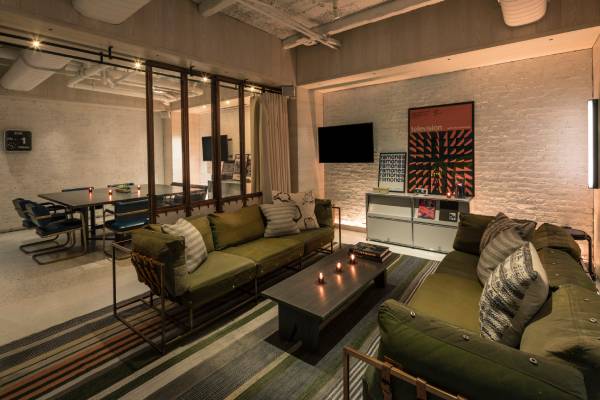Either way, strategies for luring back transient business travelers and groups start with flexibility and customization.
Contributed by Megan Rowe
Leisure travel has seen a strong rebound with the lifting of many COVID restrictions, but demand for business travel has been slower to recover to pre-pandemic levels. The tide started to turn in 2022 and many hoteliers remain publicly optimistic, but in recent months fears that inflation, rising interest rates and the war in Ukraine were pushing the U.S. economy toward a recession in 2023 have tempered some of that optimism. Other economies are facing similar scenarios.

Corporate travel managers polled by the Global Business Travel Association in October acknowledged that concerns about the economy were the factor most likely to limit business travel in 2023. But 30% of those same travel managers doubted any potential impact, and nearly half said they were taking a wait-and-see approach and not seriously considering a travel curb.
Valerie Gavin, senior vice president of sales for Accor North and Central America, captures the mood. “The signs are very positive, and we are confident about 2023,” she observes. “As always, we are keeping an eye on certain headwinds, but at this time, we’re not seeing a negative impact on our projections.”
Strategies for luring back transient business travelers and groups vary, but many operators are relying on two approaches: flexibility and customization.
“Our main focus right now is flexibility and speed to market,” says Raul Moronta, chief commercial officer for third-party manager Remington Hotels, Dallas, Texas.
“Not all clients have the same business needs. For some of them, it’s about price, some want more flexible terms and others are interested in points and offers,” adds Loretta Macke, Remington’s senior vice president of sales. Remington has offered some accounts “pick your perk” booking terms that allow clients to decide what makes the most sense for the organization.
Mission Pacific Hotel and The Seabird Resort, two newer properties in the San Diego, California, market, are focusing on tailored experiences. “Our main strategy to reach the business travel market is to adapt to the individual needs of each organization we work with,” says Ben Fairchild, area director of sales and marketing. “We understand that one size does not fit all.” The hotels offer experiences that showcase their location, such as sunrise seaside spin classes on the beachfront terrace and group surf classes.
Customized, flexible
When it comes to customization, loyalty programs remain a potent tool. “We regularly offer promotions and incentives, including status fast-tracking, reward point multipliers and more, to incentivize travelers to stay with our hotels,” Accor’s Gavin says.
“We’re constantly offering business travelers special offers and perks,” says Brendan Abraham, general manager at Atlanta’s Bellyard Hotel. A Bellyard Means Business package includes value-adds such as dry cleaning for two garments, a breakfast credit and two items from the grab-and-go F&B station. The hotel also hosts regular lobby social events and activities that have been popular with hotel guests and locals alike.

Meeting planners crave customized solutions, too. In response to this, Hyatt Hotels Corp. developed Together by Hyatt, which provides meeting organizers resources, capabilities and hybrid solutions tailored to their individual needs. The tool is meant to personalize and streamline event planning and execution. The company also launched Work from Hyatt: Offsite, which provides a flexible way for groups to engage with a destination and foster team building. The concept facilitates client bookings with local attractions, restaurants, fitness studios and other businesses.
“We are seeing strong interest in this type of concept as these reimagined corporate retreat experiences continue to grow in popularity and business travel continues to return to pre-pandemic levels,” says Trina Camacho-London, Hyatt’s vice president of group sales.
The Waikiki Beach Marriott Resort & Spa in Honolulu has partnered with local organizations and cultural leaders to schedule group activities such as working in a taro patch or doing a spiritual cleansing in the ocean “so they’re coming for more than just an ocean view or a hula show,” says Alvin Wong, director of sales. The hotel has been working with meeting planners on an extended-stay rate for attendees who want to stay longer and bring family or partners along. In response to inquiries from meeting planners, the hotel also recently added a new outdoor meeting space as part of a major renovation.
“The first half of 2023 is looking very strong for group business as we have been proactively pursuing opportunities since the beginning of 2022,” Wong says. “There is a lot of pent-up demand for group travel post-pandemic, so we were able to start conversations early when restrictions started lifting.”
For meeting planners, transparency and flexibility are key to winning the business back, observes Mitchell Hochberg, president of Lightstone in New York City, which among others owns multiple Marriott-branded Moxy hotels in New York City. “Companies across the spectrum have undergone an immense amount of change over the last few years and are eager to bring their employees back together for real face-to-face interactions despite potential headwinds,” he says. “It’s our job to create the environment to make that happen.”
Flexibility takes a variety of forms. At the Four Seasons New Orleans, which opened in July 2021, it means accommodating group bookings closer to the date. “It’s about being creative with our space,” says General Manager Mali Carow.

Messaging has evolved to address the changing needs of business travelers as well. The Four Seasons in New Orleans, for example, promotes the “urban resort” nature of the property and its location.
“New Orleans is all about festivals and celebrations, so we’re trying to tell companies and businesses that if they want to do customer appreciation events, this is a good place for it,” Carow says.
Hotels are also counting on bleisure travel demand to remain strong, especially as companies continue to allow remote work. Tapping into sustained bleisure demand requires rethinking the traditional lodging product, as Hyatt has done with Work From Hyatt, a program that provides working guests staying at least five days an amenities package tailored to their remote work needs, including dedicated workspace and high-speed internet service.
Business travelers says Hochberg, “aren’t just solving for the prototypical business trip… They’re looking to supplement their work trip with a stay that allows them to truly experience the area.” Hochberg says that includes the hotel itself, which provides cultural experiences and a chance to engage. Lightstone’s Moxy properties accomplish that through cultural programming and with meeting “studios” in the lobby designed to have a second life as a social gathering spot in the evening.
